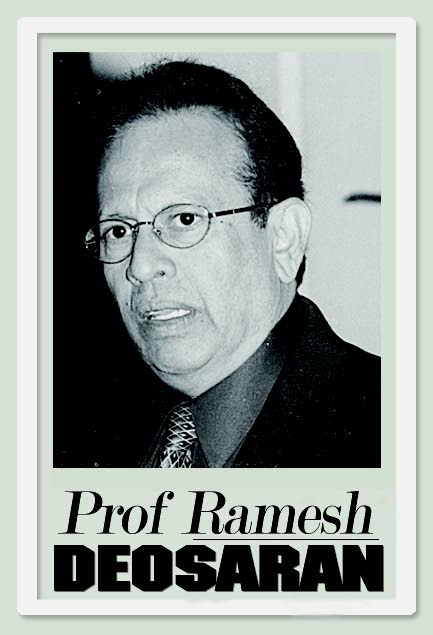A judicial pappyshow?

Pappyshow. This essentially means “to make fun of, to ridicule.” Its usage spreads from political platforms, comedy shows and pride of place at our ole mas’ celebrations. And so, two Fridays ago, a group of ole mas’ players paraded before the Hall of Justice with masks and placards quite critical of Chief justice Ivor Archie and the current state of the judiciary. Gaining widened social media coverage, it seemed to be making a pappyshow of Mr Archie and the judiciary.
So two days after, a media release sped out from acting Chief Justice Peter Jamadar who duly noted the constitutional right to freedom of speech, the “permissive social commentary and critique during carnival” on one hand, and on the other hand, the “boundaries” around criticisms against judges and the judiciary “in the public interest.”
While referring to the Hall of Justice masqueraders, the Jamadar release appeared to affect the freedom of speech granted to all media in their different forms – and “the limits.” It’s well-known that freedom of speech, like all our constitutional freedoms (Section 4) is not absolute. That’s why so many cases from here have reached the Privy Council, including the famous Ambard vs The AG of TnT (1936) which concluded that while “Justice is not a cloistered virtue,” scrutiny and criticisms “even from ordinary men” must be respectful.
Now the fact that both in and out of court, it is agreed that freedom speech, verbal or print, has “limits” implies that there is a continuum within which this freedom is practised. And as such, it becomes a matter of opinion and context as to whether the line has been crossed or not. Speech is not measured in metres or kilogrammes. Further to that challenge is the freedom traditionally given to ole mas’ paraders to mock and pappyshow the elite, from captain to cook – as implied by Justice Jamadar himself.
Local conditions and context are critical guides to judicial opinion. In the Ambard case, the Privy Council based its judgment on McLeod v St Aubyn case (1899). They said that in applying the law the Privy Council “will not lose sight of local conditions.” It therefore can be argued that (1) Public confidence in the judiciary is quite low as derived from several public opinion polls. In fact, it may well be, unfortunately, that a large section of the public agrees with the ole mas’ paraders. So the extent to which a masquerader “offends the public good” does not occupy a tight position. (2) Justice Jamadar’s release called for “temperance” in criticisms of the Judicial and Legal Service Commission and the Administration of Justice. However, Carnival ole mas, like street-wining, is not designed to be “temperate.” Its value, unfortunately or not, is in its capacity to pappyshow, particularly with matters or people who have lost favour with the population.
Judging the nature and content of speech eventually becomes a matter of opinion, notwithstanding preceding cases. In fact, in the Ambard case, the basic issue was whether the sentences applied in two similar cases were judicially inconsistent as claimed by Gazette editor Ambard. He appealed the Supreme Court fine of “£25 or one month’s imprisonment.” The Privy Council allowed the appeal and concluded that the local court had “a misconception of the doctrine of contempt of court as applied to public criticism” which “resulted in a substantial miscarriage of justice.”
The unsettled nature of freedom of speech tensions is evident in the subsequent release by two High Court judges, Justices Frank Seepersad and Carol Gobin. They countered the Jamadar release by declaring: “I have read the judiciary’s media release and unreservedly disassociate myself from the contents. As a judicial officer, I have never felt that my office shields me from measured critique or from being held to account for my actions. Respect for high office cannot be demanded, it has to be earned.
They added: “The depictions did not appear to be unfair, unreasonable and/or disproportionate especially when regard is had to the issues which have been traversed before the courts.” For me, regarding what I have seen with this country’s politics, broken political promises, JSC hearings, white collar crimes, judicial inefficiency, etc. I prefer any dispute over freedom of speech to end with the benefit of the doubt given to freedom of speech – and a fee press in particular.
(To be continued)


Comments
"A judicial pappyshow?"